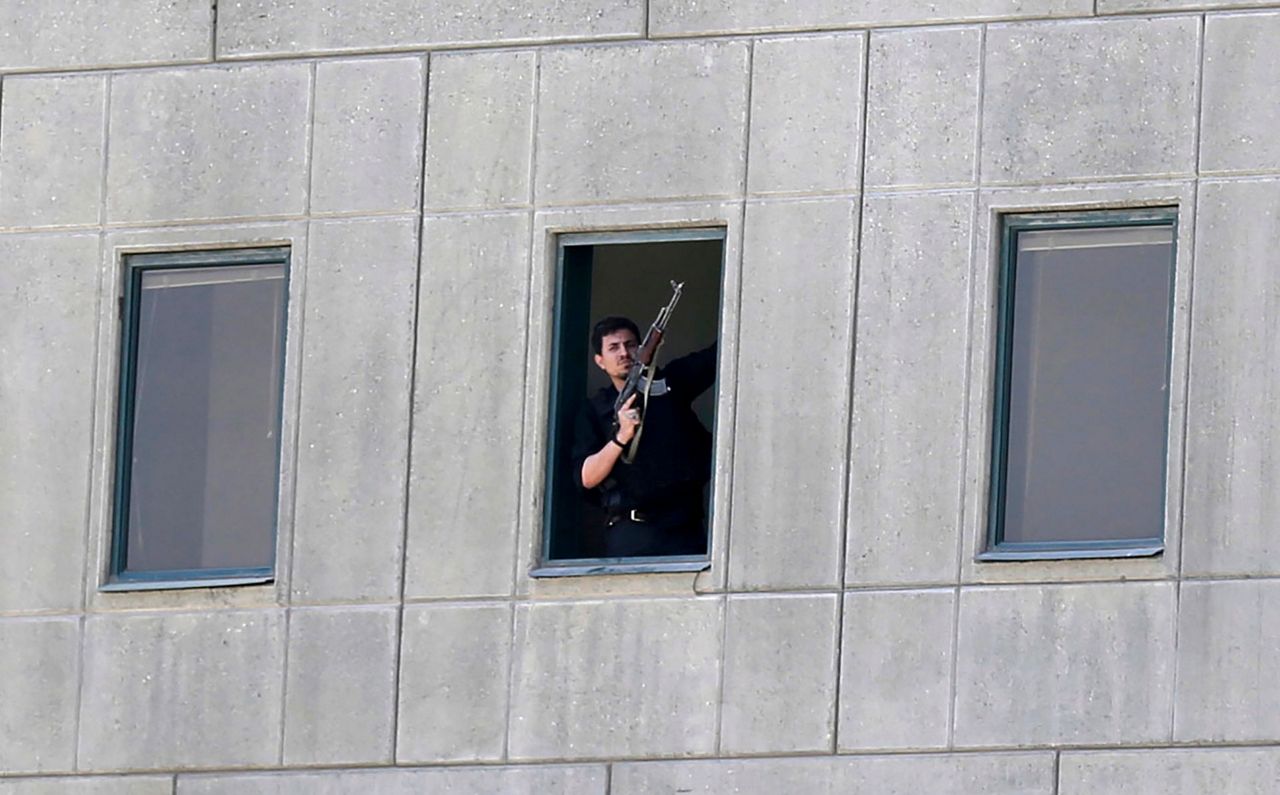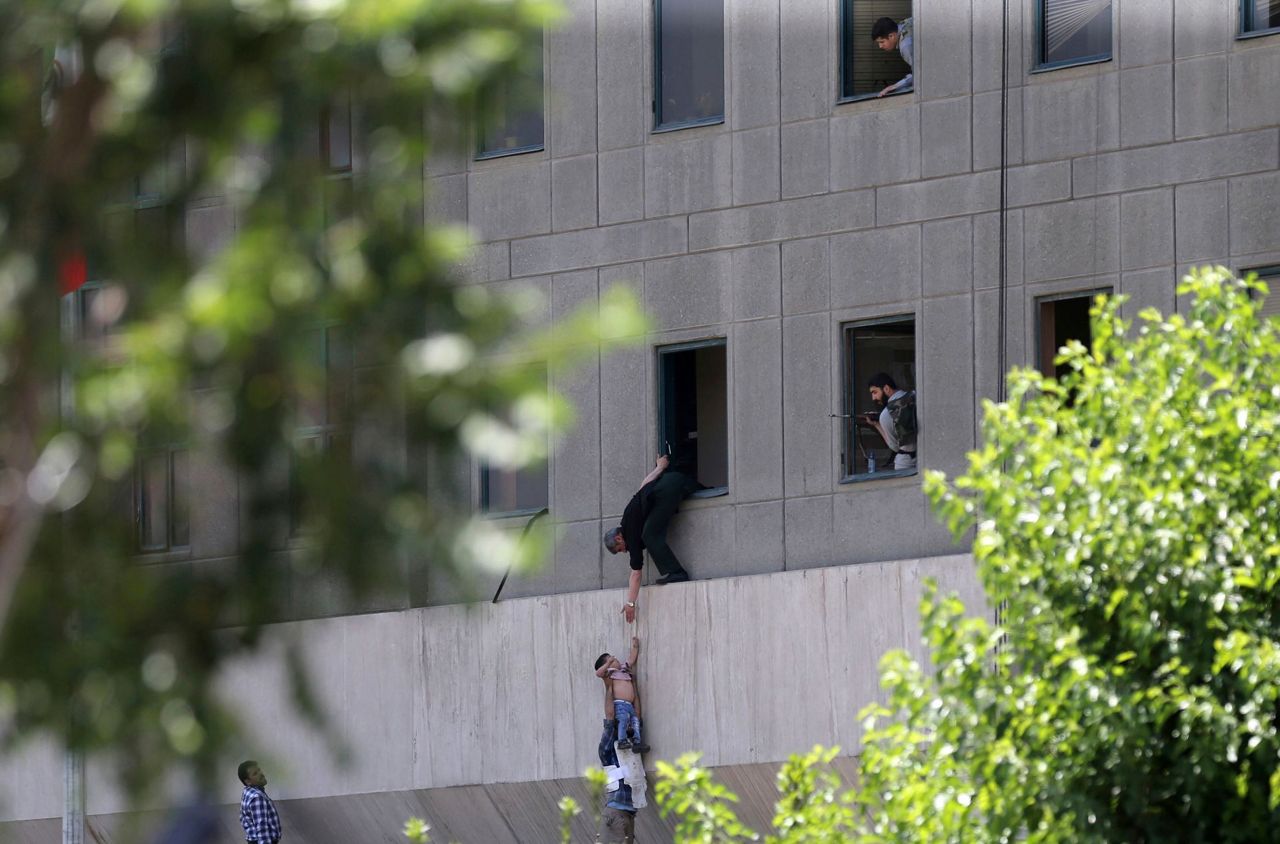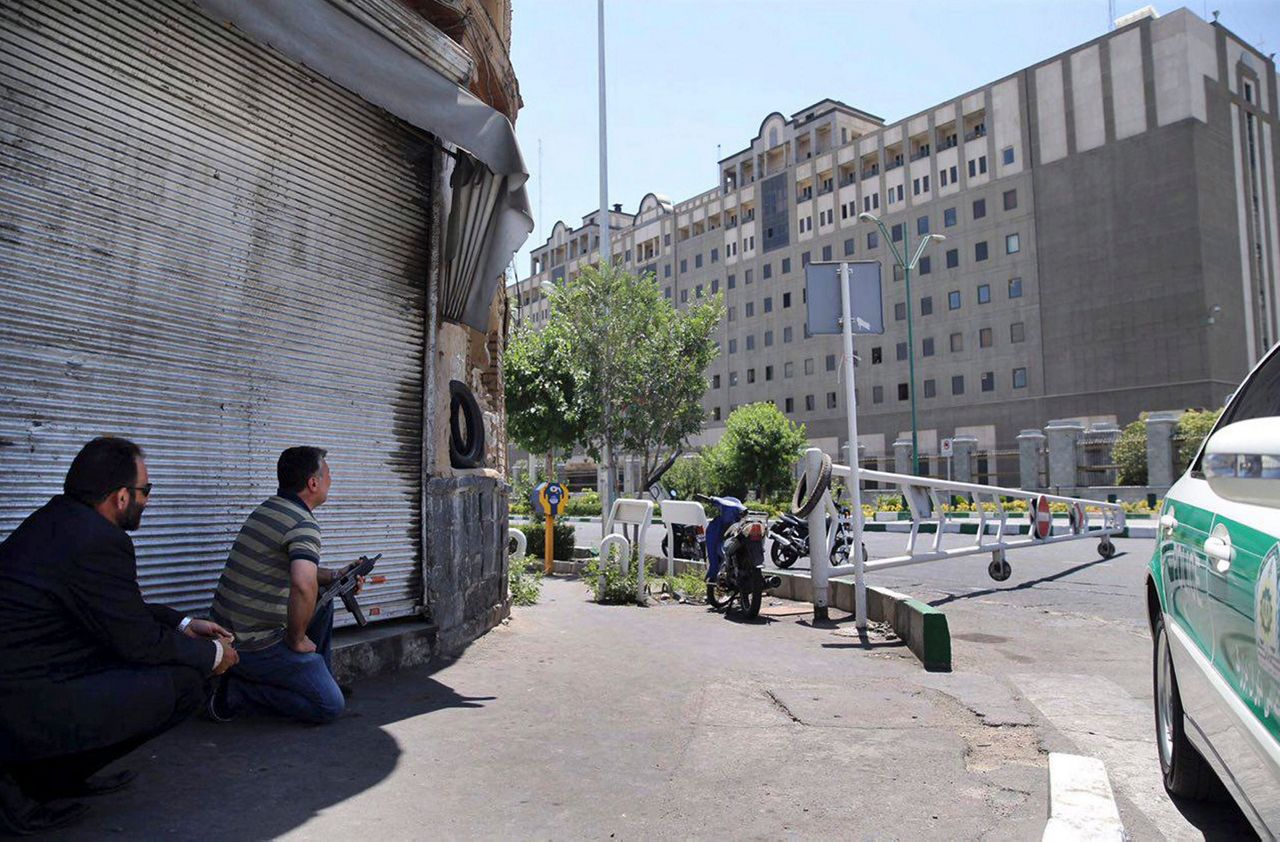DUBAI, United Arab Emirates (AP) — An Iranian court issued a $312.9 million judgment against the United States over a 2017 Islamic State-claimed attack on Tehran, authorities said Wednesday, the latest judicial action between the nations amid their decadeslong enmity.
Iran's state-run IRNA news agency, in reporting the decision, offered no direct evidence to support the court's allegation that American officials had any part in the June 2017 attack that killed at least 18 people and wounded 50 others. The assault saw gunmen attack Ayatollah Ruhollah Khomeini’s mausoleum and the country's parliament, starting an hourslong siege.
However, the court ruling comes after the United Nations' highest court in March rejected Tehran’s legal bid to free up some $2 billion in Iranian Central Bank assets frozen by U.S. authorities. Meanwhile, U.S. judges have issued rulings that call for billions of dollars to be paid by Iran over attacks linked to Tehran, as well as those detained by Iran and used as pawns in negotiations between the countries.
The U.S. State Department did not immediately respond to a request for comment Wednesday.
The IRNA report described those named in the lawsuit as including the U.S. government, former Presidents George W. Bush and Barack Obama, the CIA, the American military's Central Command, the Treasury and others. It said the case before Branch 55 of the Tehran Court of Justice came from the families of three people killed in the June 2017 attack.
“The reasons for attributing these crimes to the United States ... is based on the central and main role of the government and officials of this country in organizing and directing terrorist groups,” the IRNA report said. It cited “reliable news” and unidentified speeches by American officials as its evidence.
During his 2016 presidential campaign, Donald Trump described Obama as the “founder” of the Islamic State group. While later calling his comments “sarcasm” based on Obama’s decision to earlier withdraw troops from Iraq, conspiracy theorists across the Middle East, including Iran’s supreme leader, seized on the remarks.
The Islamic State group, a Sunni extremist group born out of al-Qaida's offshoot in Iraq, declared itself a caliphate across the vast territory it held in Iraq and Syria in 2014. A U.S.-led coalition and separately Iran-allied Shiite forces ultimately dislodged the extremists, who became notorious for their gruesome killings of prisoners and attacks abroad.
The June 2017 attack in Tehran marked the first time the Islamic State's extremists could penetrate tightly controlled Iran and carry out of a massive assault. The assault shocked Tehran, which largely has avoided militant attacks in the decades after the years-long tumult surrounding the 1979 Islamic Revolution. Iran a year later executed eight men sentenced to death over the attack.
Since the revolution, a series of U.S. court cases have been filed against Iran, particularly over attacks like the 1983 bombing of the U.S. Embassy in Beirut that killed 63 people. A 1996 U.S. law allows Americans to sue nations identified by the U.S. government as sponsoring terrorism, like Iran, for damages suffered in militant acts linked back to them. Others have sued for being wrongfully imprisoned by Tehran, like Washington Post journalist Jason Rezaian.
The court decision announced Wednesday comes as tensions between Iran and the U.S. remain high over Tehran's nuclear program enriching uranium closer than ever to weapons-grade levels under reduced oversight from international inspectors. Meanwhile, Iran is still reeling after months of protests and a violent security force crackdown following the September death of 22-year-old Mahsa Amini after her arrest by the country's morality police.
On Wednesday, Iran's judiciary acknowledged two reporters who broke news on Amini's death, Niloufar Hamedi and Elham Mohammadi, had been indicted on charges of collaborating with the U.S., acting against national security and creating “propaganda against the system.” Nearly 100 journalists have been arrested amid the demonstrations, according to the New York-based Committee to Protect Journalists.
___
Associated Press writer Amir Vahdat in Tehran, Iran, contributed to this report.
___
Follow Jon Gambrell on Twitter at www.twitter.com/jongambrellAP.
Copyright 2023 The Associated Press. All rights reserved. This material may not be published, broadcast, rewritten or redistributed without permission.





